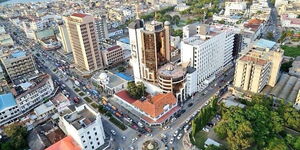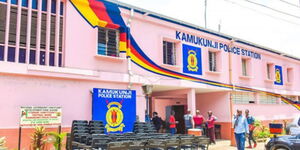Kenya Ports Authority (KPA) managing director William Ruto on Monday advertised tenders aimed at allowing private companies to run at least nine assets within the port.
The tender document obtained by Kenyans.co.ke showed that the authority had advertised for bidders interested in the development and operation of port assets through public private partnership (PPP).
Properties that are on the line include Lamu Container Terminal Berths 1 to 3, Lamu Special Economic Zone, Mombasa Port’s Berth 11 to 14 and Mombasa Port Container Terminal 1.
Filed under tender number KPA/052/2023-2024/CPS, interested applicants have until October 12 to submit their applications.
"Qualification documents will be opened promptly thereafter the deadline for submission in the presence of Bidders’ representatives who choose to attend the opening, at the Procurement Conference Room," read the tender in part.
The tender signed by the KPA MD noted that the applicant for the qualification may be a single entity or a group of entities, also known as a consortium that may consist private, public or government owned legal entity.
The applicants are also expected to form with a Kenyan firm (which is a company registered in Kenya) which shall have a share of not less than 15 per cent within the consortium.
The plan to lease the properties to private companies dates back to June 2023, a move that President William Ruto was initially opposed to but changed his mind about in an effort to reduce congestion at the port.
With the lease, the government aims at unlocking an additional Ksh1.46 trillion ($10 billion) at the port while attracting Ksh44.5 billion ($304 million) worth of investments at various ports from private companies.
The congestion at Mombasa Port had seen total cargo passing through the crucial inlet drop to 33.74 million metric tonnes in 2022 from 34.76 million tonnes in 2021.
Before taking the reins, Ruto had opposed a similar plan by his predecessor Uhuru Kenyatta arguing that the then regime intended to sell the infrastructure to a Dubai firm.
At the time, the Uhuru regime defended itself noting that it had not signed a deal with any foreign company.












